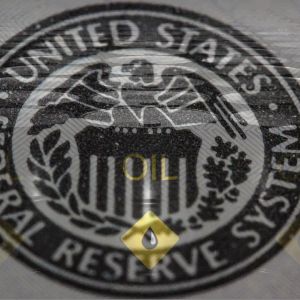Eight publicly traded companies across technology, energy, pharmaceuticals, and consumer sectors have collectively earmarked nearly $1 billion to build dedicated XRP treasury programs. The move marks the most significant corporate pivot toward XRP as a functional liquidity and payments asset rather than a speculative coin. Altogether, these firms plan to acquire and deploy XRP in reserves, staking, DeFi lending and cross-border payments. Trident and Webus Drive the Bulk of Commitments At the forefront is Trident Digital Tech Holdings, which intends to raise up to $500 million to seed one of the largest corporate XRP treasuries. According to its strategic advisory agreement with Chaince Securities, Trident will use the tokens as a long‑term reserve, stake them for yield, and integrate Ripple’s payment rails into its platform. A close second is Webus International, which disclosed plans to build a $300 million XRP treasury funded via loans and institutional credit facilities rather than share dilution. Webus aims to embed XRP into its global payment operations and revive its partnership with Tongcheng Travel Holdings to make travel payments. Mid‑Tier Players Embrace Yield and Liquidity VivoPower International has allocated $100 million from a recent $121 million private funding round toward XRP. The energy‑solutions provider will stake its XRP holdings on the Flare Network to earn interest, creating a self‑sustaining treasury loop. Wellgistics Health followed suit with a $50 million credit line to purchase XRP as a liquidity buffer. The pharmaceutical distributor views blockchain payments as a way to streamline its treasury and reduce cross‑border frictions. Smaller Firms Signal Broadening Adoption Hyperscale Data’s subsidiary, Ault Capital Group, plans to acquire up to $10 million in XRP to support a DeFi lending platform for listed companies. The proposed beta launch in Q3 will allow corporate borrowers to access XRP loans, with terms settled on‑chain and hedged with CME futures. Worksport Ltd. has committed $5 million toward an XRP treasury. The auto‑parts maker will allocate excess cash to BTC and XRP, enabling crypto payments on its e‑commerce portal. Even smaller enterprises have joined the trend. Canadian cannabis firm BC Bud Corporation set aside CAD 250,000 to buy XRP via Coinsquare, citing shareholder value enhancement. Digital Communications, a U.S. telecom services provider, committed $225,000 to XRP acquisition, reflecting interest beyond large corporations. These treasuries employ diverse funding models. Trident and VivoPower tapped private and public capital raises. Webus used debt facilities. Worksport and BC Bud reinvested existing cash. Hyperscale blended token acquisition with DeFi lending. This range of approaches underscores XRP’s flexibility as a treasury instrument. Implications for XRP Ecosystem The $1 billion planned XRP treasuries equate to roughly 2.5 billion tokens at $0.40 each—about 0.2% of XRP’s total supply. That scale could add depth to on‑chain liquidity and boost staking and DeFi markets around XRP Ledger. Institutional on‑chain activity also complements recent product launches, including Brazil’s XRPH11 ETF and CME’s XRP futures. Most companies plan quarterly and annual reporting on their XRP positions. Stakeholders will watch yield performance, balance‐sheet impacts, and technology integrations. As these programs roll out, they will offer a real‐world test of XRP’s utility in corporate finance. This wave of treasury adoption may set a precedent. If these initial eight firms report success, more public companies could follow. For now, XRP’s role is evolving—from speculative asset to core treasury tool.


















